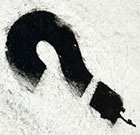When we get a gift from someone out of the blue, alarm bells start ringing. What do they want? What have they done? There must be a reason for this unexplained act of kindness…
We naturally like to try and figure out other people’s motivations; using rationality to reduce uncertainty helps us make sense of the world. The problem is that sober and logical reflection seems to kill the pleasure and romance of a moment. Sometimes it’s better to be kept in the dark, better to just marvel at the unexpected bounty that has come our way. Truly not knowing can mean intrigue and excitement. Don’t try to make sense of it, just enjoy it!
But is there any evidence for the idea that mystery increases pleasure? University of Virginia social psychologist Professor Timothy D. Wilson and colleagues have applied some cool rationality to all this romance and mystery nonsense and discovered there just might be some truth to it. Here’s what they did.
A $1 present
“We like to promote Random Acts of Kindness! Have a nice day!”Experimenters set out across campus to the library armed with two types of cards, both with dollar coins attached to them (Wilson, Centerbar, Kermer & Gilbert, 2005). These two types of cards were almost identical: both had a big smiley face at the top, and next to it was written “This is for you!”. Underneath there was some text saying: “The Smile Society, A Student/Community Secular Alliance. We like to promote Random Acts of Kindness! Have a nice day!”. On the other card the only difference was that the statements had matching questions of “Who are we?” and “Why do we do this?”.
So both cards had pretty much the same information on them, but one also had corresponding questions. A preliminary study confirmed that people saw the cards with the questions as providing a better logical explanation of the unexpected gift, whereas without the questions the gift was more mysterious.
They randomly chose people sitting in the library and gave them one of the two cards with the $1 attached. Then, under the guise of carrying out a different study a short time later, they got a measure of their mood.
The results showed that those who were less certain about why they’d been given a gift remained happier than those who were more certain. So it does seem that mystery prolongs the pleasure.
Different situations
The experimenters followed up with two further tests of the idea in different circumstances. In one participants watched an uplifting film based on a true story. They were then given two passages to read about what had happened to the person after the film. These were both positive but differed slightly in their details. One group was told which was the true story, the other group was kept in the dark. Again, the uncertain group were in a more positive mood for longer after seeing the film.
Those who were uncertain which of the six had praised them were happier with their positive feedback for longer.In the second situation participants thought they were involved in a study about other people’s impression of them online. After interacting with six different people they were given positive feedback about the impression they had made. In one group participants were told specifically which of the six people had given them feedback, whereas in the other group they weren’t. As in the previous two studies those who were more uncertain were happier with their positive feedback for longer.
The explanation
It might seem strange that increased uncertainty can maximise pleasure in these situations because uncertainty is often associated with anxiety. People automatically do their best to avoid uncertainty – it is how we cope with negative emotional events. Research shows that when people are exposed to traumatic events, the sooner they ‘make sense’ of what has happened, the sooner the negative emotion is reduced and they recover.
We try to reduce our uncertainty by explaining positive events and thereby reduce the amount of positive emotion we feel.Exactly the same process seems to operate for positive emotions. We try to reduce our uncertainty by explaining positive events and thereby reduce the amount of positive emotion we feel. It’s an unfortunate consequence of an adaptive process that normally helps us recover from traumatic and upsetting events.
So, the next time you give someone an unexpected gift and they ask why, just smile mysteriously and let them enjoy the moment for a little longer. Sometimes explanations really do kill the magic.
[Image credit: amortize]
References
Wilson, T. D., Centerbar, D. B., Kermer, D. A., & Gilbert, D. T. (2005). The pleasures of uncertainty: Prolonging positive moods in ways people do not anticipate. Journal of Personality and Social Psychology, 88(1), 521.

